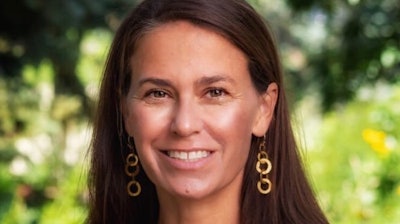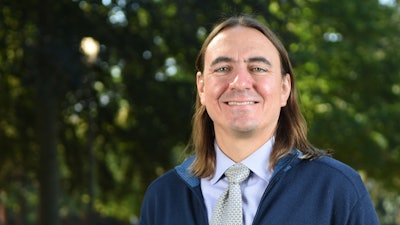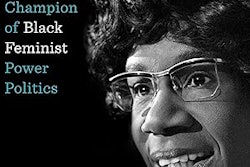 Kristen A. Carpenter is Council Tree Professor of Law.
Kristen A. Carpenter is Council Tree Professor of Law.
The U.S. government officially recognizes 574 Indian tribes across 49 states (Native Hawaiians are considered separately).
In June, the U.S. Supreme Court issued a 5-4 decision that states and the federal government have concurrent jurisdiction over crimes committed by non-tribal members against tribal members on tribal lands unless congress states otherwise. This contradicts a long-standing position that states lack jurisdiction.
Oklahoma v. Castro-Huerta
In this matter, the state of Oklahoma sought to have concurrent jurisdiction with the federal government in the case of a non-Native American man, Victor Manuel Castro-Huerta, who was accused of neglecting his Native American stepdaughter within Cherokee Nation. Justice Brett Kavanaugh wrote, “As a matter of state sovereignty, a State has jurisdiction over all its territory, including Indian country.”
In his dissenting opinion, Justice Neil Gorsuch wrote, “Truly, a more ahistorical and mistaken statement of Indian law would be hard to fathom.” Gorsuch was the lone dissenter appointed by a Republican president, but his dissent did not surprise Kristen A. Carpenter, Council Tree Professor of Law, and director of the American Indian Law Program at the University of Colorado Law School.
“Justice Gorsuch understands treaty rights and federal Indian common law in a way that unfortunately Justice Kavanaugh appears not to,” says Carpenter, who was surprised to see the Supreme Court make such a sharp departure from the established baseline of federal Indian law.
 Monte Mills is the Charles I. Stone Professor of Law and director of the University of Washington School of Law's Native American Law Center.
Monte Mills is the Charles I. Stone Professor of Law and director of the University of Washington School of Law's Native American Law Center.
“Tribal colleges are incredibly important in Indian country,” says Matthew L.M. Fletcher, Harry Burns Hutchins Collegiate Professor of Law and Professor of American Culture at the University of Michigan. “It is likely many educators in tribal colleges will be Native, but there are only so many Native instructors. Non-Native instructors are desperately needed as well.”
Carpenter says if there is a criminal matter the state could have a new role in adjudicating the matter, and tribal institutions need to prepare for that. Fletcher notes most states do not expend many resources prosecuting Indian country crime and are unlikely to start, but it is possible some may follow Oklahoma’s lead.
“This adds another layer of complexity to those already complex jurisdictional questions and prosecutions, and really has the potential to further disconnect the exercise of criminal justice from the people in the community and the government in the community that is closest to the effects of those criminal actions,” says Monte Mills, the Charles I. Stone Professor of Law and director of the University of Washington School of Law’s Native American Law Center.
“These conflicts between tribes and states aren’t anything new,” he says. “Having a broader and deeper base of understanding among state policy makers, state legislators, state officials and the public more generally, I think, would really help turn down the temperature on some of these conflicts. Ideally, also support opportunities for inter-governmental collaboration.”
Encouraging Native Americans to attend law school
“The law, particularly federal law, has played and continues to play a critical role on the ground every day in tribal communities,” says Mills.
There are Native American attorneys serving as judges for tribal nations. Fletcher not only teaches and writes about federal Indian law, American Indian tribal law, constitutional law and legal ethics, but also sits as the Chief Justice of the Pokagon Band of Potawatomi Indians and the Poarch Band of Creek Indians. He has worked as a staff attorney for four tribes.
Two structural things are helpful in getting more Native Americans interested in attending law school, Fletcher notes. First, University of Michigan has a pathway program where Native undergraduates are funded to attend a week-long symposium on getting into law school. The second thing has been around for 55 years, the Pre-Law Summer Institute for American Indians (PLSI) from the American Indian Law Center held every summer in New Mexico, which he estimates 30-40% of all Native lawyers practicing today have attended.
“It’s sort of a boot camp for American Indian students about to start law school,” Fletcher says. Students take a legal writing class, get introduced to a couple of courses, and generally learn what law school is like. “Then, you have people you’re going to know the rest of your career,” he says.
On Indigenous Peoples Day (Oct. 11), University of Colorado held a special event with traditional Native food, a T-shirt giveaway and educational information about the United Nations Declaration on the Rights of Indigenous Peoples.
Walter Echo-Hawk, president of the Pawnee Nation and an attorney, spoke about the declaration and the current Indigenous rights movement, and law students led a discussion about the declaration. Carpenter notes that the American Indian Law Program has superb community partners, particularly the Native American Rights Fund (NARF), the leading public interest law firm in Indian law.
“Together with NARF, we planned this event to engage youth, especially high school and college students, around human rights and environmental wellbeing,” says Carpenter. “After the program it was amazing to see the young people come up to my law students and ask them questions ranging from the significance of treaty rights to how they decided to go to law school.”
Carpenter and her law students are visiting reservations and together with NARF doing workshops about the United Nations Declaration (passed in 2007). The Colorado State Legislature recently voted to extend in-state tuition to all citizens of the 48 tribes with historic ties to Colorado, making law school slightly more affordable and welcoming, she says.
Mills says law school recruitment of Native students has increased. “If you want to go back to your community and help support efforts in tribal governance or tribal justice, this is an opportunity to do it,” he says.
Legal scholars
“Where we can be of service to tribal interests, we want to lend our talents to doing that,” says Mills. “With our particular focus in legal and policy expertise and the ability of our students to do important work to help in those areas, we want to continue to move issues forward to the extent that those are things that tribes both in the area and across the country are interested in.
“We’re seeing an era of tribal leadership around a number of issues — be it taking on the epidemic of missing and murdered Indigenous people or expanding natural resource management conservation or governance and cultural protection — tribes are really taking the lead,” he continues.
Fletcher monitors pending cases and decisions closely and does everything he can to make primary source documents like briefs and pleadings available to Indian country. He sometimes comments on his blog, Turtle Talk, also talks to media and writes articles offering commentary. In addition to Native students, he encourages non-Native people with a commitment to social justice to get into the field.
“There’s a lot of work in Indian law, and some of it is kind of lucrative,” says Fletcher, who has seen increased interest in Indian law the last few years. Law schools such as Stanford and NYU have hired Native law professors for the first time. “If you have an Indian law class under your belt, it’s a plus for getting an elite federal court clerkship.”
Carpenter teaches and writes about property, cultural property, American Indian Law, human rights, and Indigenous people’s rights. Native American and non-Native students in the American Indian Law Program see it as a career path, according to Carpenter. Colorado’s LLM (Master of Law) program draws Indigenous students from other countries.
“We’re involved in national conversations with the National Congress of American Indians, offering them support on tribal resolutions that will then hopefully influence legislation,” says Carpenter.
“Scholars can do a lot by studying what tribes are actually doing,” says Fletcher. “In recent decades, tribal initiatives are real laboratories of democracy, offering more creative and thoughtful government advances than most states.”
The case on the Supreme Court docket is Haaland v. Brackeen, a lawsuit brought by Texas (and previously Indiana and Louisiana) and several individual plaintiffs alleging the Indian Child Welfare Act (ICWA) is unconstitutional. Passed in 1978, ICWA protects the inherent rights of tribal nations to be involved in child welfare matters involving their citizens. Several tribes have dedicated millions of dollars of resources to defend ICWA over the past few years. Mills says this case has the potential to raise some deep and concerning questions about the foundations of federal Indian law.
“The community of tribal and Indian law scholars across the country has long been engaged, whether that’s amicus briefing before the Supreme Court or just coordination and lending expertise to legal issues that come up, which (for better or worse) they often do,” says Mills. “More broadly, educating folks about these issues — not just in a superficial way — but really focusing on aspects of tribal sovereignty and the historical tribal state or federal relationships. Where we in academia can really help is promoting a practical understanding of these issues.”


















